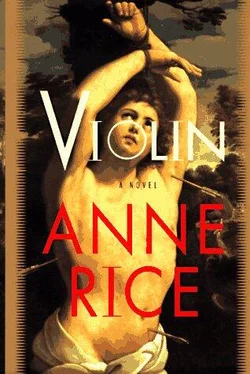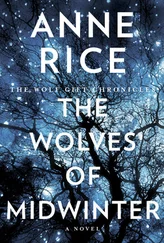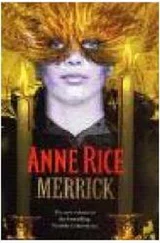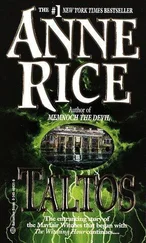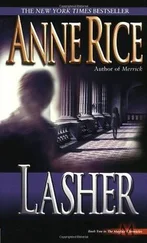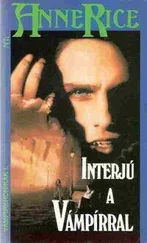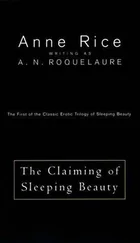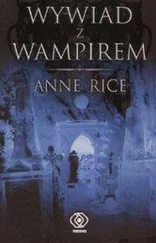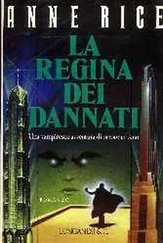I looked at Stefan, my Stefan the ghost, staring past me, as if he too were riveted by this hellish vision, his own eyes glazed, his mouth tender, the delicate muscles of his face moving as though he struggled desperately against what he saw-Couldn't this be changed, Couldn't that be changed, Did that have to be destroyed?
He whipped around and looked at me, caught in this moment of preoccupation.
Only sorrow. Some question in his eyes to me, Do you see?
The crowd continued to tumble over us, yet never saw us; we were not a part of the frenzy, no obstacle, only two figures that could feel and see all that this world contained, in perfect empathy.
A flash caught my eye, a familiar figure.
"But there you are," I cried. It was the living Stefan, far off, I saw him, the young Stefan of life in the flaring fancy coat with the high collar, safely away from the fire, the instruments strewn about him. An old man leant to kiss Stefan's cheek, stop his tears.
The living Stefan held the violin, the rescued violin, a young Stefan, in dirty bedraggled finery. A woman now came, cloaked in fur-trimmed green silk, and lifted her drapery around him.
Young men gathered the precious salvage.
A hard blast struck me, like a wind not of this vision. Dream, yes, wake. But you can't. You know you can't.
"Of course not, and would you?" Stefan whispered, his hand cold on my hand, which held the true violin. And what had become of that, the toy the young man had saved? How were we propelled to this?
But something brightened fiercely in the corner of my eye.
There stood the Maestro, not alive in this world at all any more than we were.
Apart from the crowd; and hortiftingly intimate with us, coming close so that I could see the tufts of his gray-black hair growing from his low brow and his keen black eyes dancing over us, and the pout of his colorless mouth, my God, my guardian, without whom I cannot even imagine life itself.
I wanted no protection from this.
"Stefan, why this now!" said Beethoven, the little man I knew, the man all the world knew from scowling statuettes and dramatic windblown drawings, pockmarked and ugly yet fierce and a ghost as surely as we were. His eyes fixed me, fixed the violin, fixed his tall spectral pupil.
"Maestro!" Stefan pleaded, tightening his embrace, even as the fire burnt on and the night thickened with cries and bells. "She stole it! Look at it. Look. She stole my violin! Make her give it back to me, Maestro, help me!"
But the little man glared, shook his head as he had before, and then turned, sneering, grunting, disgusted, and once again walked away, the crowd eating him up again, the black confusion of jabbering and crying people all chaos around us, and the infuriated Stefan clutching me, trying to close his hand over the violin.
But I had it.
"Turn your back on me?" he said. "Maestro!" he wailed. "Oh, God, what have you done to me, Triana, where have you led me! What have you done! There I see him and he leaves me-"
"You opened this door yourself," I said.
Such a stricken face. Defenseless. No emotion could have made him anything but beautiful. He stepped back, frantic, wringing his hands, truly wringing them, look at his white fingers as he wrings his hands, and he stared with wild tormented eyes at the great crashing collapsing shell of the house.
"What have you done?" he cried again. He stared at me and the violin. His lips shook, and his face was wet. "You cry for what? For me? For it? For you? For them?"
He looked from right to left, and back again.
"Maestro!" he called out, eyes searching the night. He stood back, lip jutting, sobbing. "Give it back," he hissed at me. "Give it back. In two centuries, I have never seen a shade as sure as myself, never and now! And this shade is the Maestro and this shade turns its back on me! Maestro I need you, I need you-"
He moved away from me, not deliberately; it was only the idle dance of his desperate gestures, his searching gazes.
"Give it to me, you witch!" he said. "You're in my world now. These things are phantoms and you know it."
"And so are you and so was he," I said, my voice small, broken, even lost, but insisting. "The violin is in my arms, and no, I won't give it up. I will not."
"What do you want of me?" he cried. His fingers outstretched, his shoulders hunched, the dark straight eyebrows expressionless, themselves giving the eyes beneath them all the more expression.
"I don't know!" I said. I cried. I gasped for breath and found it and didn't need it and it wasn't enough and didn't matter. "I want the violin. I want the gift. I played it. I played it in my own house, I felt myself give in to it."
"No!" he roared, as if he would go mad in this realm where he and I alone stood, iguored by all these fleshly beings rushing and calling.
He came head on, and threw his arms around me. His head came down on my shoulder. I looked up, even as he held me, as I felt all the silky hair of his head falling down wild over my face. I looked up and past him and saw the young Stefan, and there with him a living Beethoven, surely it was, a gray-haired living Beethoven, stooped and belligerent and full of love, hair a fright, clothes snaggled, taking his young pupil by the shoulders as the pupil wept and gestured with the violin as if it were a mere baton, while others sank down to their knees or to sit on the cold stones in their weeping.
The smoke filled my lungs, but it didn't touch me. The sparks made their ceaseless whirl around us but had no fire to burn us. He held me, shivering, and careful not to crush this precious thing. He held me, blindly, burrowing his forehead against me.
Clutching the violin tight, I lifted my left hand to hold his head, to feel a skull beneath his thick, soft, velvet hair, and his sobs were a muffled vibrant rhythm against me.
The fire paled, the crowd faded; the darkness became cool, not cold, and fresh with the salt air of the sea.
We stood alone, or at a great distance.
The fire was gone. Everything was gone.
"Where are we?" I whispered in his ear. He seemed in a trance, as he held me. I smelled the earth; I smelled old and molding things, I smelled . . . I smelled the stench of the newly dead, and the old dead, but above all of clean salt air blowing it all away, even as I caught it.
Someone played a violin exquisitely. Someone brought sheer enchantment out of the violin. What was this facile eloquence?
Was this my Stefan? This was a prankster at the instrument, with an immense power and confidence, tripping and tearing through a song more likely to make fear than tears.
But it pierced the night like the sharpest blade. It was crisp and originless in the gloom.
It was mischievous, gleeful, even full of anger, this song.
"Stefan, where are you? Where do we stand now?" My ghost only held tight to me as if he himself didn't want to see or know. He sighed heavily, as though this frantic song didn't touch his blood, didn't galvanize his spectral limbs, as though it could not ensnare him now in death as it ensnared me.
Soft winds off the sea came again over us, and again the air was full of the damp of the sea, I could smell the sea, and far off I realized what I saw: A great crowd with candles in their hands, cloaked figures, figures with gleaming black top hats, and long dresses, full skirts gently sweeping the earth, dark gloved fingers protecting tiny quivering flames. Here and there the lights clustered to illuminate a whole gathering of attentive and eager faces. The music was fragile then bursting with strength, a deluge, an assault.
"Where are we?" I asked. This smell, it was the smell of death, of the rotting dead. We were crowded amongst mausoleums and stone angels. "Those are graves, look, marble graves!" I said. "We stand in a cemetery. Who is playing? And who are these people?"
Читать дальше
